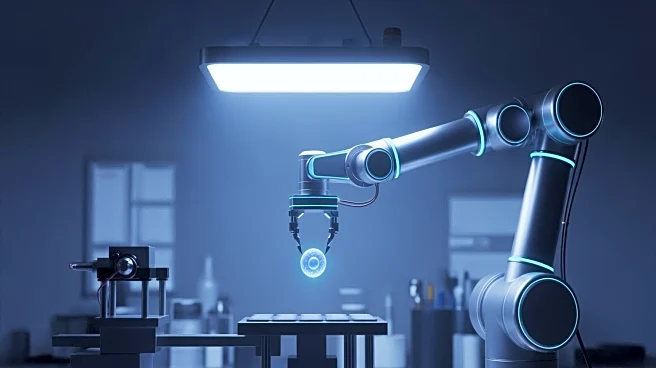What's Happening?
SPT Labtech and 10x Genomics have announced a partnership to automate single cell research workflows. This collaboration aims to enhance the scalability and efficiency of experiments conducted on 10x's Chromium Single Cell platform. The partnership will
provide optimized protocols on SPT Labtech's firefly liquid handling platform, streamlining single cell assay workflows. The collaboration builds on 10x's acquisition of Scale Biosciences, expanding access to single cell and spatial solutions. The partnership was highlighted at the ASHG conference in Boston, showcasing data from customer labs that demonstrate the benefits of automated liquid handling in single-cell library prep workflows.
Why It's Important?
The partnership between SPT Labtech and 10x Genomics is crucial for advancing genomic research. By automating single cell workflows, the collaboration addresses key challenges in reproducibility, efficiency, and scalability, which are essential for high-throughput genomic studies. This development can accelerate discoveries in biology and medicine, potentially leading to breakthroughs in understanding complex diseases and developing targeted therapies. The integration of automation in single cell research also reduces barriers to adoption, making advanced genomic tools more accessible to researchers and institutions.
What's Next?
The partnership is expected to expand further, with plans to integrate the Visium Spatial platform into the automated workflows. As more labs adopt these automated systems, there will likely be an increase in the volume and quality of single cell data generated, driving further research and innovation. Stakeholders, including academic institutions and biotech companies, may explore additional collaborations to enhance the capabilities of automated genomic research tools. The success of this partnership could also influence the development of similar automated systems in other areas of genomic research.
Beyond the Headlines
The automation of single cell workflows raises important considerations about the future of laboratory work and the role of human expertise. While automation can improve efficiency and accuracy, it also necessitates a shift in skill sets for researchers, who must adapt to new technologies and methodologies. Additionally, the increased reliance on automated systems highlights the need for robust data management and security protocols to protect sensitive genomic information. Long-term, the integration of automation in research could lead to a transformation in how scientific studies are conducted, with implications for training and workforce development in the biotech industry.

















